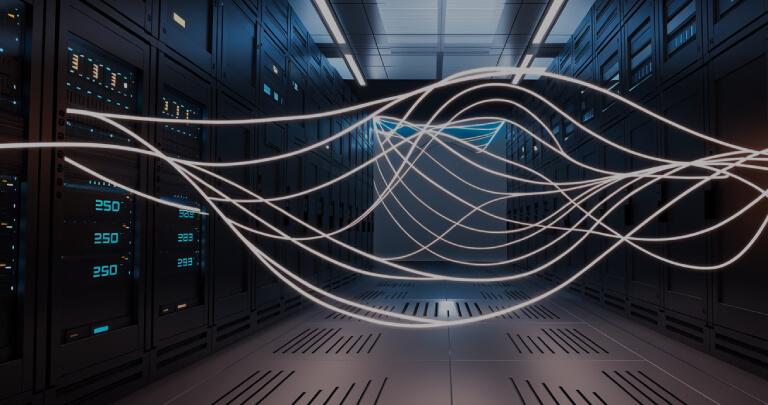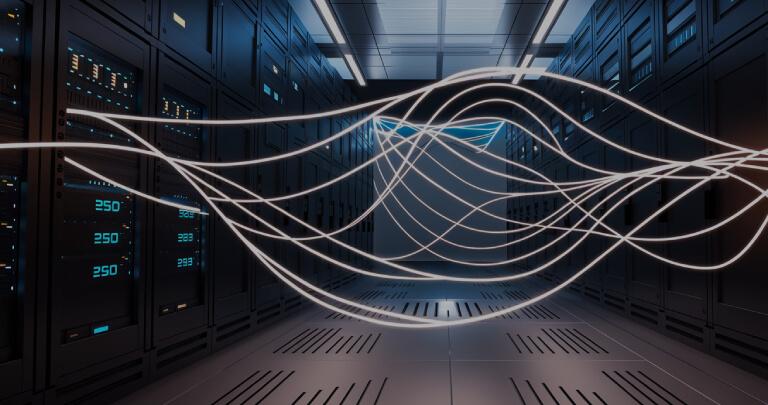How this concept shapes a new era of technological advancement


In an era marked by data proliferation and the relentless
pursuit of efficiency, Compute Fabric emerges as a game-changing concept, merging cutting-edge hardware with intuitive software
architectures. Although the term may sound like a textile reference or an abstract computing model, in essence, it refers
to a sophisticated infrastructure designed to handle large-scale data processing more seamlessly and intelligently.
What Is Compute Fabric?
According to Jensen Huang, the CEO of NVIDIA, Compute
Fabric is the blueprint for building a unified, high-performance backbone capable of supporting intensive computational tasks.
Rather than treating computing components (like CPUs, GPUs, and network systems) as disparate elements, Compute Fabric unifies
them, enabling these resources to share data and workload responsibilities more dynamically. This approach not only enhances
speed and scalability but also creates a more resilient environment, breaking down bottlenecks often seen in traditional data
center setups.
The NVIDIA perspective
NVIDIA’s role in shaping the Compute Fabric
landscape cannot be understated. Known primarily for its GPUs, the company is now pioneering interconnected technologies—ranging
from high-speed networking hardware to advanced software frameworks—that collectively form the bedrock of robust computing
environments. Jensen Huang’s vision extends beyond gaming or AI inference; it aims to create a holistic ecosystem where
each hardware piece and software layer coordinates to process massive data workloads efficiently, be it in AI training, analytics,
or large-scale simulations.
Why does it matter?
1. Scalability and performance
By designing a unified infrastructure, businesses
can expand their computational power without constantly overhauling systems. This ensures smooth growth in line with ever-evolving
data demands.
2. Reduced complexity
In a Compute Fabric, different components communicate
fluidly, minimizing the need for complex integrations. This streamlined interaction translates into reduced operational hurdles
and cost savings.
3. Future-proofing
As data-driven strategies become the norm, organizations
must prepare their infrastructure to handle everything from real-time analytics to machine learning workloads. Compute Fabric
provides the agile foundation for these evolving needs.
The road ahead
Implementing a robust Compute Fabric strategy can
be transformative for organizations seeking to stay competitive. It offers a flexible platform to accommodate innovations
like AI-driven analytics, real-time data processing, and advanced computational tasks.
By embracing Jensen Huang’s definition and
leveraging NVIDIA’s specialized hardware and software solutions, businesses can build a resilient, high-performance
ecosystem poised for the future of digital transformation.
Count on Visionnaire
When it comes to harnessing the benefits of Compute
Fabric, partnering with an AI Factory like Visionnaire can be a significant step toward future-proofing your organization’s
technological foundation. Visionnaire specializes in building advanced AI-driven solutions for businesses of all sizes and
sectors, aligning perfectly with the principles laid out by Jensen Huang of NVIDIA. Here’s how Visionnaire can help:
1. Holistic infrastructure planning
Compute Fabric revolves around unifying diverse
computational resources—CPUs, GPUs, networking, and storage—into one cohesive environment. Visionnaire guides
businesses through designing such an infrastructure, ensuring your systems can handle massive data workloads while staying
flexible enough to adapt to growing demands.
2. Intelligent AI integration
As an AI Factory, Visionnaire brings expertise
in developing machine learning and deep learning solutions that fully leverage Compute Fabric’s high-performance architecture.
By aligning hardware and software strategies, Visionnaire ensures that each system component—from processing units to
analytics platforms—coordinates seamlessly, delivering faster insights and reducing time-to-market.
3. Scalable custom solutions
Different industries have distinct data processing
needs, whether it’s real-time analytics for finance, automated quality control in manufacturing, or personalized customer
experiences in retail. Visionnaire’s custom solutions are designed to scale alongside these demands, building on Compute
Fabric’s elastic nature to provide robust performance without overhauling entire infrastructures.
4. Cost-effective and secure deployment
Visionnaire not only helps you identify the right
blend of hardware and software but also ensures a secure, budget-conscious approach. The company’s development and deployment
methodologies balance cutting-edge technology with optimal resource allocation, allowing organizations to capitalize on Compute
Fabric’s benefits without hidden expenses or security compromises.
5. Continuous support and innovation
Embracing Compute Fabric is an ongoing journey.
Visionnaire provides continuous support, from monitoring system performance to optimizing resource usage, ensuring you stay
on track with evolving AI and data analytics trends. This steady guidance helps you maintain a competitive edge in a rapidly
shifting digital landscape.
By entrusting an AI Factory like Visionnaire to
implement a Compute Fabric-based approach, organizations can accelerate their path to innovation, glean deeper insights from
large datasets, and forge a future-ready infrastructure that scales with business goals.
If you’re aiming to drive transformation in
your company—whether you’re a startup or a large corporation—Visionnaire stands ready to architect, develop,
and optimize solutions aligned with NVIDIA’s Compute Fabric vision, helping your enterprise stay ahead in a data-driven
world. Talk to us
to learn how we can help you.




